Advice Before & During Building A Custom Home
After many discussions and spreadsheets I (my wife continues
to remind me that it was my idea) felt that the time was right to build a new
home. We could have remodeled our existing, sufficiently large and comfortable
home but the ‘numbers guy’ in me just couldn’t get over that we may be pricing
ourselves out of the neighborhood in the event of a future sale. And of course
a little “it would be nice to finally build and have a new home” came into play
as we couldn’t exactly renovate the property to our ultimate preference.
Gratefully all seemed well in our world, so we embarked on
the journey of hiring an architect and finding a piece of property to build our
dream home. We purchased a lot in a nice subdivision and went to our bank
asking for a loan to complete the construction. And with that our journey had
just begun.
It is now April of 2016, almost two years since we started
the process, the home is wrapping up and in an effort to potentially help
others and blow a little steam I wanted to share a few thoughts on our home
building experience. While it is exciting to see it all come together, there
are many items that I failed to consider or refused to listen to from others
who have embarked on a similar journey.
Our contract was a fixed cost contract with allowances for
various items; flooring, lighting, etc. Our builder did not finance the
construction cost so once a construction loan was closed with a local bank any
additional items above the contract were paid out of pocket.
On allowances:
-
Allowances are often (always?) insufficient. I
had read beforehand of some issues with allowances so I can’t say I went in to
the transaction blindfolded. And to be fair to this argument our tastes are on
the higher end of things and we did want the home built in a manner that would
not require ‘redoing’ things a few years down the line. I’m not talking
polished marble through the whole home or gold plated fixtures, but wanted
marble in the master bath, granite in all bathrooms, site finished hardwood
flooring, nicely finished trim detail, along with a few other niceties. We did
increase allowance amounts while negotiating the contract with the builder but
I am fairly certain we still exceeded every allowance; even those in which we
felt originally felt sufficient. The big ones from memory were cabinetry,
flooring, electrical, cement work, and finished carpentry (this one can get
CRAZY expensive in a hurry fyi). Get pricing
on EXACTLY what you want/expect before signing a contract (white oak vs. red oak, this
brand of flooring or that, etc.). It will save you both time and frustration/disappointment.
On credits back from the builder:
-
This was definitely the greatest source of being
pi**ed off, pardon my language. There were several items where we did not want
what was ‘included’, such as mirrors (our cabinet maker made them to match the
cabinets, more on him below) low voltage wiring, etc. The ‘credit’ back was not
even sufficient to buy the material they were providing, let alone the assumed
installation costs. They had more excuses than my three year old and I
ultimately just wanted them put whatever was not installed in the basement (would come in handy when we finish the space). Petty, maybe, but it was ridiculous
and principle based; “we’ll give you a $200 credit for all the mirrors in the
house”. Yeah right pal. I’ll use them in the garage for golf swing purposes or
the soon to be built gym area in the basement or maybe have a few framed for
accent pieces. If you don’t want something, I suggest negotiation that upfront
or swapping it for something else.
On cash flow during the construction:
-
Our contract was a construction loan, so every item
which was over the allowance (or those that were given as a credit at closing
such as carpet) required spending savings, utilizing cash flow or thankfully in rare cases the dreaded
credit card to cover the cost; they were not rolled into the final loan amount.
I’m not talking a few hundred here and there, but thousands. Every. Single.
Month. The building process has temporarily impacted our savings rate which makes
both my wife and I feel very uncomfortable and nervous as we are ‘pay yourself
first’ people and like a nice cash cushion. While we knew it may happen to some
extent, we VASTLY underestimated this aspect and the associated discomfort. Whatever
you realistically think something will cost, just double it, seriously, and
have reserves after that. Time and timing
of necessary decision making can often become your worst enemy in my experience.
Working with the builder:
-
This was our first experience building a home
and for the most part we feel our builder and their staff have done a great job
for a construction stand point. They resolved issues quickly, offered
suggestions for improvement (often at a cost of course) and have communicated timely.
I had known others who utilized these folks in the past so was comfortable with
their finished product. And they are local which I feel helped. There were a
few heated moments which I suspect is par for the course, but do know that the
builder will most likely always have the upper hand. If you expect something to
be included, BE VERY SURE it is in
the blueprints and in the contract.
Again, BE VERY SURE that what
you are expecting is in a legal document, specifically described, and signed
by all parties. Vagueness is your loss and their win so any exhibits or amendments
to the contract should be extremely precise. Have a qualified real estate
attorney review all documents. Don’t be penny wise and pound foolish here. Take
your time and have patience during the initial process, put emotions aside, and
you’ll be thankful.
Spending Less (saving money as some like to say):
-
We tried where possible to spend less. This
lead us to sourcing cabinets from an Amish cabinet maker instead of sourcing from a local custom cabinet
dealers. David Miller of D.L. Miller Woodworking in Shipshewana, Indiana and
staff were an absolute pleasure to work with and we could not be more pleased
with the results! This did require several trips down and a bit of back and
forth as they are not as internet savory as some others (they can fax things
like no one’s business though!), but the kids are good on car drives and
the town of Shipshewana proved fun for them as well. Do yourself a favor and
speak with David if you’re building or remodeling. He’s just the nicest and
most caring man with amazing craftsmanship and attention to detail. http://www.dlmiller.net. They built all
cabinetry in our home as well as a large wooden island and a walnut desk top
for my office. He is the only person during our build that I would specifically recommend or refer. Call him ASAP as he gets very busy and there can be a wait
to get on his build calendar.
-
We sourced some beautiful Lauzon engineered
hardwood for the kids rooms and bonus room from Canadian vendors at a discount
of 40% or so of what we would have paid here (we’re located in Metro Detroit
and the dollar exchange rate is very strong at the moment making the purchase
of Canadian made products a great value; same goes for Canadian made furniture
by the way and if you are close to Windsor, Ontario check out Coulter’s
furniture. Linda & Kyle have been great to work with! Canadel dining set and leather
furniture was much less expensive there than here; hasn't been delivered yet but confident all will be well.)
-
Smart coupon and online shopping and being price
conscious helped on lighting (bought quite a bit through Costco as well and
their affiliated Lighting by Pecaso). Plan to spend countless hours online. Some manual labor such as installing engineered
flooring and sound insulation as well as running/terminating low
voltage/internet/security wiring resulted in a more personalized/customized end
product at a lower cost. The builder understandably wasn’t thrilled with
letting us do the work, but with persistence and proof of my capabilities (and
signing various waivers) they agreed. Just keep in mind that they have a
schedule to keep so we did most of the work on weekends as not to disrupt. Worth
noting: in doing some of this work myself I got to know several of the
tradesman which I believe resulted in a better result and more attention to
detail. Couple cases of beer goes a long way too!
Keeping an eye on things during the build:
-
Our new home is several miles down the road so
it was not a logistical chore to get over there. It feels like we were there
every day making sure things were done properly and to spec; suggest you do the
same if possible. We caught several fairly significant items (to us anyhow)
that would most likely have been passed over made on a discretionary basis had we
not pointed them out in time. The downside is that it has been disruptive to our
lives (self-inflicted) and seemingly added another chore to an already busy
life of work, shuttling kids to school/practice/dance, getting to the gym, etc.
We often found it necessary to eat out which resulted in a larger waistline and
lighter wallet; hopefully moving boxes will help with the former. While the
process can be exciting, it comes with stress and a giant time suck. And don’t
forget all the muddy shoes and dirty cars. My God the mud gets everywhere!
Other items that stick out:
-
Landscaping: Our contract did not include
landscaping, which is fairly significant with retaining wall, two patio areas
and a large corner lot. One of the smartest decisions we made was to hire a
landscape designer in advance of getting quotes for the work. The designer
specified quantities, sizing and description of all planting materials,
specific hardscaping materials as well as made sure we satisfied local and
subdivision requirements. While we spent a few thousand for their time, it was
much easier to ultimately select the company to provide the services as they were all bidding on the same plans. We
sourced three quotes from local companies (some of which had done work for
other new homes in the neighborhood) and I can tell you for certain we spent a
lot less than most others, ceteris paribus. Quotes still ranged by
over $30k which is real money to this guy. It was comical at times listening to the various value propositions.
Still laughing as I write this at some of the things said by these fine folks; “we
get first pick of the pavers” (we specified the color and size), “we sift and
rinse our stone before install to reduce dust” (yeah right buddy), “our grass
is longer when installed” (what?). Hilarious.
-
Carpeting: This was an allowance item but holy
crap did we not expect this one. The allowance given as a credit at end closing
by the builder was $5k. This ultimately wasn’t even enough to install the upper
and basement staircase and the upper landing. Middle of the road bound patterned
carpet and nice padding, but more stairs are more $ apparently. Maybe we got
ripped off but at this point in the project we were sooooooo done it was less
painful to write the check than bicker. At least we have an IRA contribution
due back to us at closing.
-
Concrete & Flatwork: The builder of course
includes their ‘standard’ walkway and driveway. We widened the driveway and the
walkways and also increased the porch to a more appropriate scale for the home.
Make sure you check local zoning ordinances as we ultimately need to install
handrail in several areas that added up to a not insignificant amount of money. Masonry and stone work is also very expensive as it turns out.
-
Electrical: For the most part we felt they were
fair with quantity of outlets (code dictates most of this anyhow). Upcharges
for fan boxes are fairly standard from what I understand, but what really added
up was the accent lighting (led behind trim as an example), reading lights next
to the bed, few extra can lights here or there, couple extra outdoor outlets on
switches, 220 line and extra outlets in garage, etc. Easily $3k total. One
other area worth mentioning is the chandelier. We have a tall foyer (27 feet I
think) and we didn’t plan on installing a chandelier lift. Of course now we
wished we had just done it, I have absolutely no idea how I am going to change
a light when they eventually go out and we chose a crystal chandelier which is
both heavy and shows dust noticeably. I know, first-world problem for sure.
All in all I guess the process has gone relatively smoothly.
The financial drag both during the process and what I foresee as the ensuing
recovery have been the worst part and remain unsettling. I am certain from a financial transaction the house is a loss but I guess money is only a tool anyhow. This home will allow our children and ourselves to age in a comfortable space that fits our lifestyle and preferences, and checks off
one item on my bucket list!
Was it worth it? Only
time will tell, but right now the momentary impact is far outweighing the fun
and excitement of it all. This is not a process that I would suggest to anyone
who is not financially secure and who is willing and able to feel like a fish
out of water at times. My wife and I are extremely fortunate in our careers,
financial capabilities and the timing of this financial transaction but can
tell whomever made read this that for certain had experienced a recession or unexpected
significant negative financial event during the process it very well could have
been put us in a position of severe anxiety. With easy credit and rising home prices, just tread carefully before you commit.
Hope these words are as helpful to you as they were getting off my chest and out of my mind! Here’s to that long awaited cocktail on our new patio!
Comments (20)
User
8 years agoThis is good.
We are about 9 months in our custom home. Some of the bruises fade with time.
Allowances are the devil. We had very few, but still...wish we had just made that extra push into none.
Have your architect do an electrical plan. Then there are no surprises.
Landscaping. Yes, our one regret. I am doing it now. I'm not that good at it. But small steps... I wish I had budgeted 20 or 30k for a real professional plan. I will be okay doing ot, but it will take a couple years.
Be careful of the money. Yes, it is shocking how much money this process can chew through. You can be house poor in your 20s or 30s and recover within a few years as your career advances. Don't do it in your 50s.
Thanks for taking the time to write this up.
lakeerieamber
8 years agoVery insightful, thanks! We are just in the beginning stages but we are in a similar region as you (northern Ohio).
Related Professionals
Royal Palm Beach Architects & Building Designers · Troutdale Architects & Building Designers · Yorkville Design-Build Firms · Buena Park Home Builders · Ellicott City Home Builders · Kearns Home Builders · Bon Air General Contractors · Catonsville General Contractors · Chatsworth General Contractors · Chicago Ridge General Contractors · Haysville General Contractors · Marysville General Contractors · Modesto General Contractors · Port Washington General Contractors · Uniondale General ContractorsAndy
8 years agoThanks for sharing all of that. I'm in a similar position, but with a shorter timeline.
We close on our construction financing next week, and just started working with the builder (a highly respected local design-build firm) at the beginning of February. Their owner met with us, we talked about what we wanted, and used some of the plans from houses they had built in our budget range in the past for reference (almost everything they build is custom). A few weeks later they had drawn up awesome plans that addressed everything we wanted, and even did some things that we didn't even know we wanted (like putting the dining room, which we were considering omitting, in the back of the house so that you can see the view of the valley). A few minor adjustments in early March, and then a couple of weeks to get the contract together (fixed with allowances), and then a couple of weeks for financing. It's amazing how it came together so quickly. We've been told the end of the year is a realistic time frame for completion of the house. I'm fine if that pushes a few months closer to spring, as we will be renting our old house. The contract allows them 10 months to build it, but that's a worst case. It helps that the weather will be nice when they are working outside.
We'll see how it goes. I really doubt we'll see much allowance overage until we get to the finishing details (low voltage and lighting are the main ones I'm expecting), because aside from the 8000 sq ft of gravel and asphalt millings, all of the places you would get hit with overages are later in the build. It's also possible (but unlikely) that we need to blast rock to dig out the foundation, which would be a major bummer. Anyway, the thought of hitting thousands of dollars of change orders every month during the build is certainly a little discomforting, I definitely hope that's not our experience.I'm in a fortunate situation in that there is such a highly respected design-build firm, located just a few miles away from our land. I'm also fortunate in that my best friend is a builder in a neighboring state, and will be able to verify the work at key intervals (foundation, framing, etc) with a level of understanding and eye for detail that I just do not possess. So, since I have an expert in my corner, I feel a lot more comfortable having the architect work for the builder.
Given the things I have read on this forum, I feel like it was a wise choice. I think there's a tremendous value that comes from knowing exactly what things cost when designing a home with a budget in mind, and risky as it can be, I have a general philosophy of putting my trust in people who I believe to be ethical professionals that deliver quality. I'll put it this way...I asked the attorney I've used for settlements for years if he wanted to review the construction contract, he asked me who the builder was, I told him, his response was "I'll look at if you want but you have nothing to worry about with them." That's a rare level of trust for an attorney to exhibit, so I feel like I'm in good hands.
But, we shall see!
Renee Texas
8 years agolast modified: 8 years agoGet pricing on EXACTLY what you want/expect before signing a contract (white oak vs. red oak, this brand of flooring or that, etc.). It will save you both time and frustration/disappointment.
I hear so many people burned on this. Go into the budget meeting knowing what you want, costs (your builder may have contacts with better prices!), and work all of this out before beginning the build, while setting the budget. If possible, have bids and pricing in hand for everything (plumbing, lighting, counters, flooring, appliances, etc). We found it so much easier to basically have the house "built" on paper before we signed papers- allowances were then the correct amount for what we wanted- not too little, and "extra" could be spent elsewhere. Or something goes on sale, and your builder cuts you a check at closing- yes, this happened! Our blueprints include electic, hose bibs- everything. I think there were 10 or 12 pages of bluprints, plus the contract, we signed off on. I disagree about landscaping, though... I LOVE to garden. I'll take the plans from the landscape architect, let him do irrigation and seed the yard, and do the rest myself- and I appreciate is opinion on what to plant where! :) We've built 3x with our custom builder- the first time everything went well, but the next two we did as above, and it was very stress-free. All that was really painful (at times) was driving out to check work each day.
nbonn
Original Author8 years agoGreat feedback! Our build was in an existing subdivision where our choice of builders was limited and require use of their subs. Agree with having the architect put electrical and plumbing in the plan. Our builder was good with doing walkthroughs with the contractors which helped eliminate costly change orders. Generally the builder will use their sub contractors so I'm not sure getting bids before hand does much than waste the time of people who won't be working on your home. Of course if you are paying cash or just hiring a g.c. This may not be the case. Totally agree that we should have known exactly what everything was going to cost but quite frankly we had a fairly realistic expectation of appliances, etc. cabinetry is all over the map on pricing as is flooring so spend most of your time on the big items. All in all we have spent an additional 7% or so of the build price over and above the contract.Sandy
8 years agoWow, I guess we were really lucky or had a builder that was good at setting allowances. We had a fixed price contract with allowances. We had been shopping around so we had some idea of what the costs would be for lighting, flooring and appliances, so we did raise those numbers some from what he had before we signed the contract.
We actually were under on the allowances by a few thousand, but we ended up spending it plus some more on two change orders. We changed how we were finishing out the fireplace, and DH decided we needed the irrigation system in the back yard also. We did have landscaping in the contract since I don't have a clue about that, I'm just trying not to kill anything now that we are living here.
We did go to the site most days but it wasn't very far from the house, and it was fun to see the progress made.
DLM2000-GW
8 years agoI'll have to come back and read - this looks very helpful.
My advice may help someone who is renting a house or apartment during their build. Be sure to inquire BEFORE you sign a lease if you will be able to continue renting on a month to month basis (with sufficient notice, of course) after your lease expires.
mrspete
8 years agoYes, very informative! Thanks for taking the time!
One thought I have after reading -- you can tell me whether you think I'm on track or not.
Allowances vs. overages. You say (as does pretty much everyone else) that allowances never seem to be "quite enough". But overages seem to be worse since they only give you back a pittance ($200 for mirrors, per your example). Sooooo ... since, even if you've done your homework, you're never going to hit the actual amount (because prices change, models become unavailable) ... isn't it better to have a slightly low allowance? I mean, you end up paying more out of pocket ... but you're paying the actual cost for the actual items you want. You're not negotiating "money back" for items not used and getting the short end of the stick.
Well, actually I mean wouldn't it be better for the allowance to be a bit low AND ALSO you'd expect to pay something more out of pocket. Being surprised by a bill is the worst idea.
If I'm wrong, feel free to say so -- but explain to my why I'm wrong!
I'm actually interested in doing as much of my own buying as possible. For example, they can build my kitchen without appliances. I'll buy 'em from Lowes and have them brought in later. I'll buy my own light fixtures, etc. It seems like a way to keep more control over the items and the cost.
Sandy
8 years agoIn my build allowances were different then what the builder usually uses in his build.
What I mean is our builder had certain things that were built into the bid price and if we chose not to use that, the credit back was not what the actual cost was.
On the allowance items a set amount was set aside for that category, such as appliances. We would chose what appliances we wanted and if the cost was over the set amount we owed that amount. If it was under then he owed us.
In our case, there was a mistake at the store where we were getting the appliances, someone dropped the ball and they didn't get ordered, and when we found this out it would have taken too long to get them in and delay our move in. We decided to get different appliances that were available, and that came out a few hundred cheaper, so the builder refunded us the difference.
I'm sure this is as clear as mud.
Virgil Carter Fine Art
8 years agoMrspete wrote, "...... isn't it better to have a slightly low allowance? I mean, you end up paying more out of pocket ... but you're paying the actual cost for the actual items you want. You're not negotiating "money back" for items not used and getting the short end of the stick..."
Everyone's preferences and financial situation are different, so there's probably no universal "best" approach, only one in which there are no surprises mid-way through the construction project. If you prefer the way you describe, and you choose an owner-contractor construction contract which is properly worded for your intent, then the situation will work for you. It all depends on the wording of the construction contract!
In my experience, there are many, many folks who sign construction contracts (which are prepared by the contractor and often worded in the contractor's favor) and thereafter become very surprised at how the subsequent construction, administration and finances work out.
The Golden Rule is to have a construction contract which the owner understands and which represents their intentions and best interests.
I always recommend that architectural construction drawings and specifications be fully completed and that there are no allowances. In such cases, the builder bids and furnishes everything that is included in the construction documents. In such cases there may be owner-furnished items or not, which the contractor may install or not. It's up to the owner with a properly worded construction contract.
In the case of tract homes and builder developed homes, most builders have developed the habit of working with their own incomplete drawings and specs (if they even have specs), leaving out the specific definition of a great many things and simply substituting a cash allowance because it makes life simpler for the builder.
Unfortunately, some builders use this approach as a way to initially low-ball the initial project construction costs, knowing that they will get the additional needed monies later during construction, either through change orders and/or through upgrades to allowances.
Again, the Golden Rule for homeowners before and during construction is to have a construction contract which will not allow for surprises during the construction period. Unfortunately, when only working with a builder it may be very challenging to reach agreement on a construction contract which fully represents the owner's intentions and best interests.
omelet
8 years agoI have always assumed the issue of getting "less
back" when not using builder-preference items only applied to a
semi-custom build, not a a fully custom build. If this isn't true, I'm
interested in hearing other experiences.In our previous
custom build, and our ongoing build, there is nothing in the build that
the builder "normally" includes. Our builds have been custom from the ground up and the contract and the price are based only on what we said we wanted. We do
have allowances, and we will either pay or get money back based on the
actual cost of those categories (some of which we don't control, like
how deep the well will be).This is a topic worth another thread, but I would not assume that excluding appliances from your build and purchasing and having them installed later is the best path. It might be, but there might be other ways to ensure you control costs and have the end result you want.
chisue
8 years agoI want the builder to bid to *install* -- not tell me how much I'll spend on appliances, cabinets, windows, fixtures, etc. I was also astounded to find that the plumber refused to warranty anything I didn't buy 'through him' -- markup to me, discount to him...nice profit.
I learned the hard way that *any time* you tell the architect to make changes to your plans, you must re-read the entire plans all over again to make sure nothing *else* has been changed. Somewhere during revisions the under-cabinet lighting in my kitchen was dropped from the electrical plans. I never realized it until the cabinets were on the walls. I do have that lighting, but it had to be jury-rigged.
CSKI 13
8 years agonbonn, I think this is one of my favorite GW threads of all time, thank you. Appreciate your generosity in sharing your experiences. While no one else's experience will match yours exactly, you provided so many details covering so many aspects of your build, that there seems to be plenty of cautionary tales/details for just about everyone! I do hope your healing (financial and otherwise) is both complete and quick! Congratulations on your new home.
Stephanie Sims_Arnold
7 years agoI just found this thread and absolutely love the candid perspective. It really makes me consider if this (building) is something we should undertake. Thanks for the thread!
millworkman
7 years agoWow, look at that your first post, happy as a clam with the builder and you throw in a link to the builder's site and everything. What are the odds..............
Germain Wong
7 years agoOMG nbonn, I'm going to print out your post and read it through twice every night before bed! LOL...
This is EXACTLY what I was looking for (I had posted a question in the forum before finding your post).
Thank you so much for taking the time to write this. I am terrified as hell doing into the process.... Like you, my wife likes to remind me: "hey, it was YOUR idea!" when things get rough (and yeah, we haven't even actually started the project now, it's going for bids soon!).
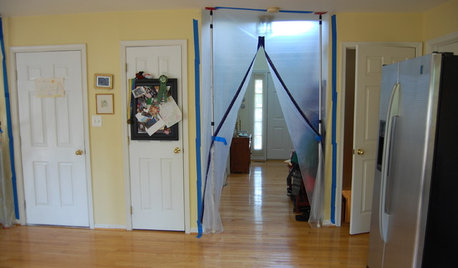
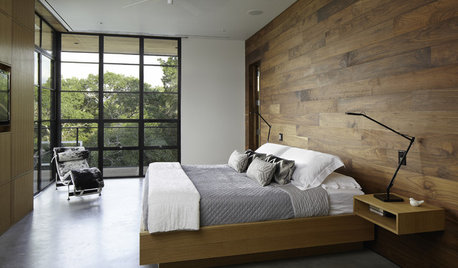

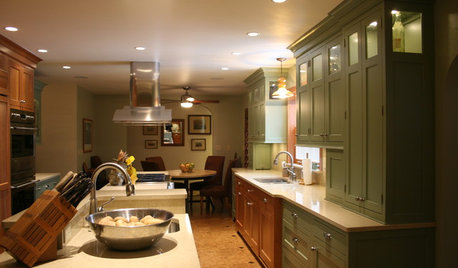
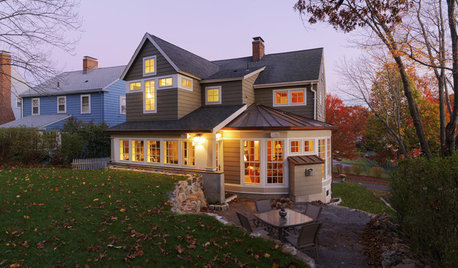
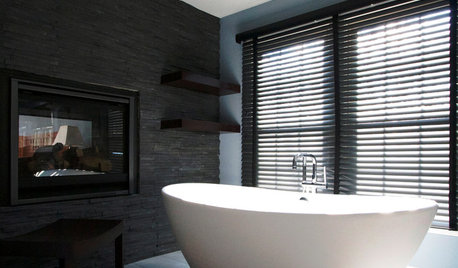
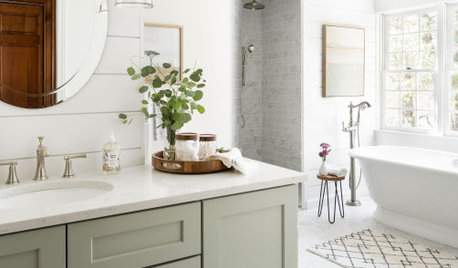
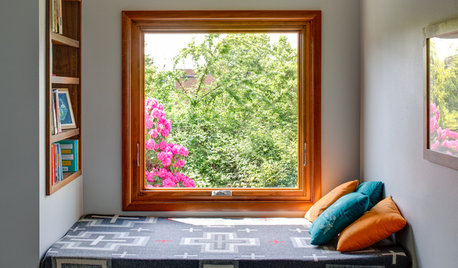

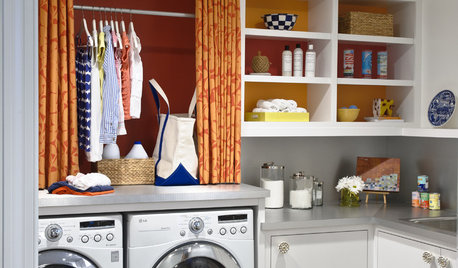










homechef59